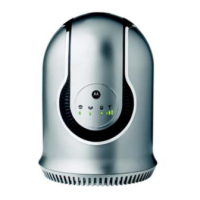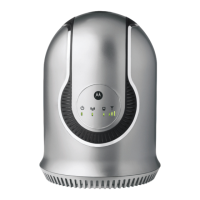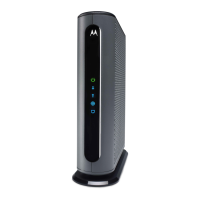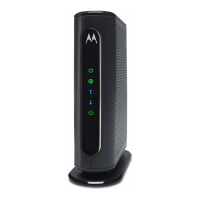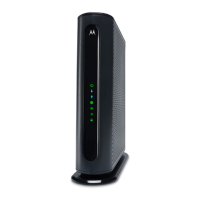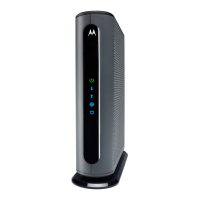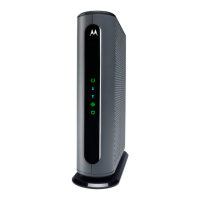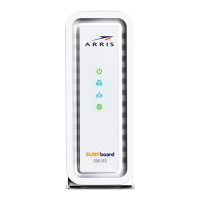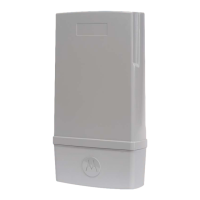
Do you have a question about the Motorola CPEo 450 Series and is the answer not in the manual?
Provides a general introduction to the Motorola CPE Outdoor (CPE0 450) device.
Details the key features of the CPE device, including performance and control.
Explains the function of the bottom side panel LED indicators and describes the bottom panel ports.
Provides technical specifications such as temperature range and power rating for the device.
Describes the scope of hardware installation and lists required items for the CPE 0 450.
Details necessary computer settings and verification before configuring the CPE.
Provides steps to access the CPE's web interface for initial login and configuration.
Guides through the initial setup wizard, including password change and authentication method.
Introduces the Personalize menu and its available tabs for device settings.
Covers changing the password, setting device time, and naming the CPE device.
Explains how to reset the CPE to its original manufacturer default settings.
Lists the tabs available within the Internet menu: WiMAX Security, IP, Firewall, and Dynamic DNS.
Covers authentication methods required by the service provider for WiMAX connection.
Details configuration for Internet Protocol and firewall settings for network protection.
Explains how to configure Dynamic Domain Name Service (DDNS) for static domain association.
Describes the Status menu, which provides information on Network and Telephony status.
Details how to check the status of the WiMAX broadband and telephony connections.
Details the configuration settings for VoIP account details for Line 1 and Line 2.
Covers customizing ring tones and managing Caller ID functions for telephones.
Explains how to manage call forwarding features for Line 1 and Line 2.
Details how to view voice mail status for Line 1 and Line 2.
Provides a list of special dialing numbers for VoIP phone service features.
Explains how to direct incoming traffic to specific LAN hosts based on protocol and port number.
Details how to create and manage additional port forwarding rules using WAN and LAN port settings.
Allows configuration of Local Area Network (LAN) connections, including DHCP settings.
Enables DHCP server functionality to dynamically assign IP addresses to network clients.
Shows active DHCP leases, including client host name, MAC address, and IP address.
Allows managing lease reservations to ensure clients receive the same IP address each time.
Provides access to view and update device software information, certificates, system settings, and about information.
Details managing device software upgrades and handling digital certificates stored on the device.
Covers system settings like language and LED controls, and displays device properties like model and serial number.
Provides step-by-step instructions for configuring TCP/IP settings in Windows 2000.
Provides step-by-step instructions for configuring TCP/IP settings in Windows XP.
Provides checks for power-related issues, ensuring the AC adapter and outlet are functional.
Addresses issues with logging into the CPE and connecting to the internet, suggesting cable checks and wizard re-runs.
Advises contacting the service provider for further assistance with troubleshooting.
Guidelines for RF energy exposure, installation, and operation to ensure compliance.
Covers FCC, Industry Canada, IC Radiation, and EU Declaration of Conformity for the device.
Details environmental compliance, equipment disposal procedures, and China Management Methods disclosure.
Contains legal notices, copyrights, trademarks, and company notices regarding the document and product.
